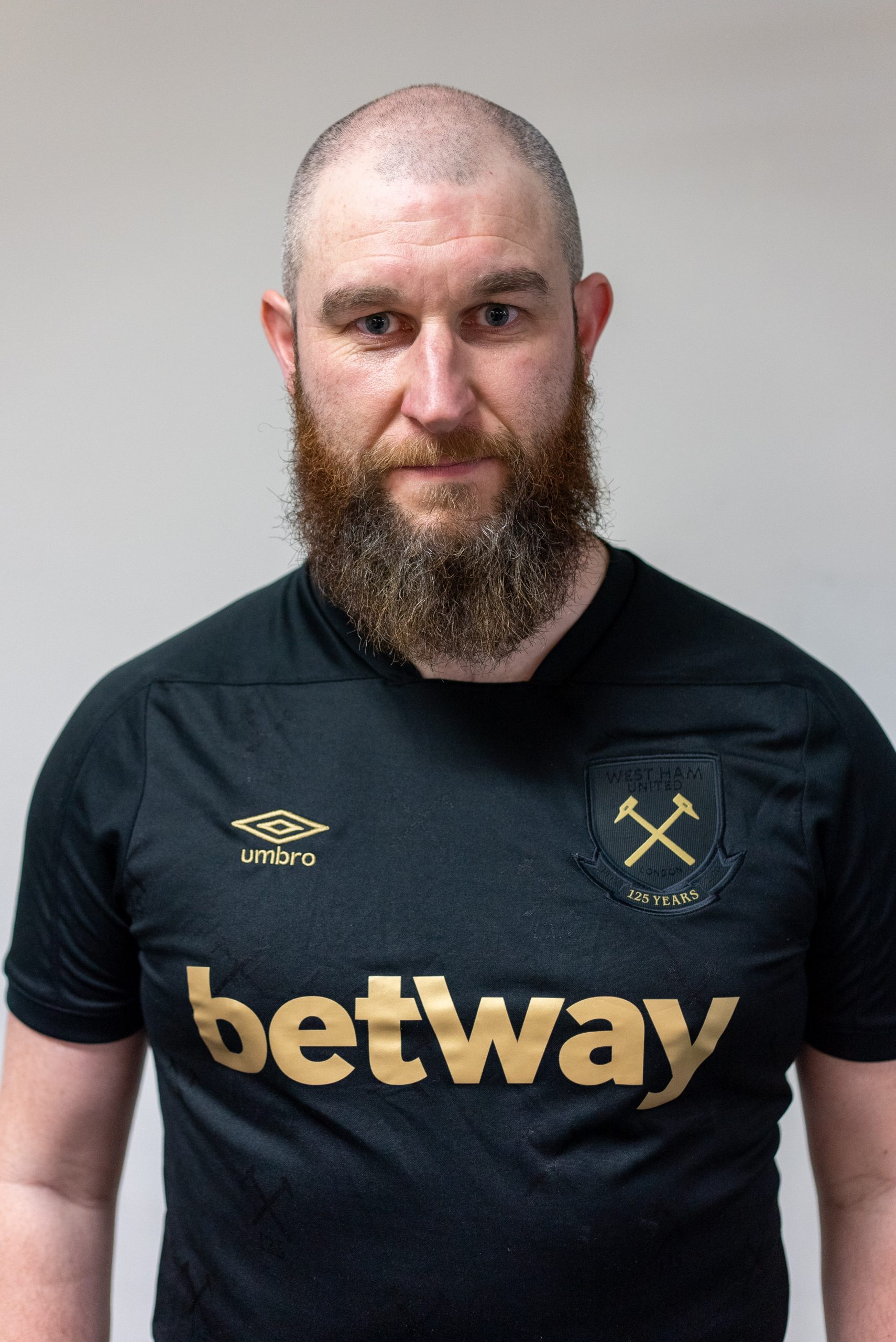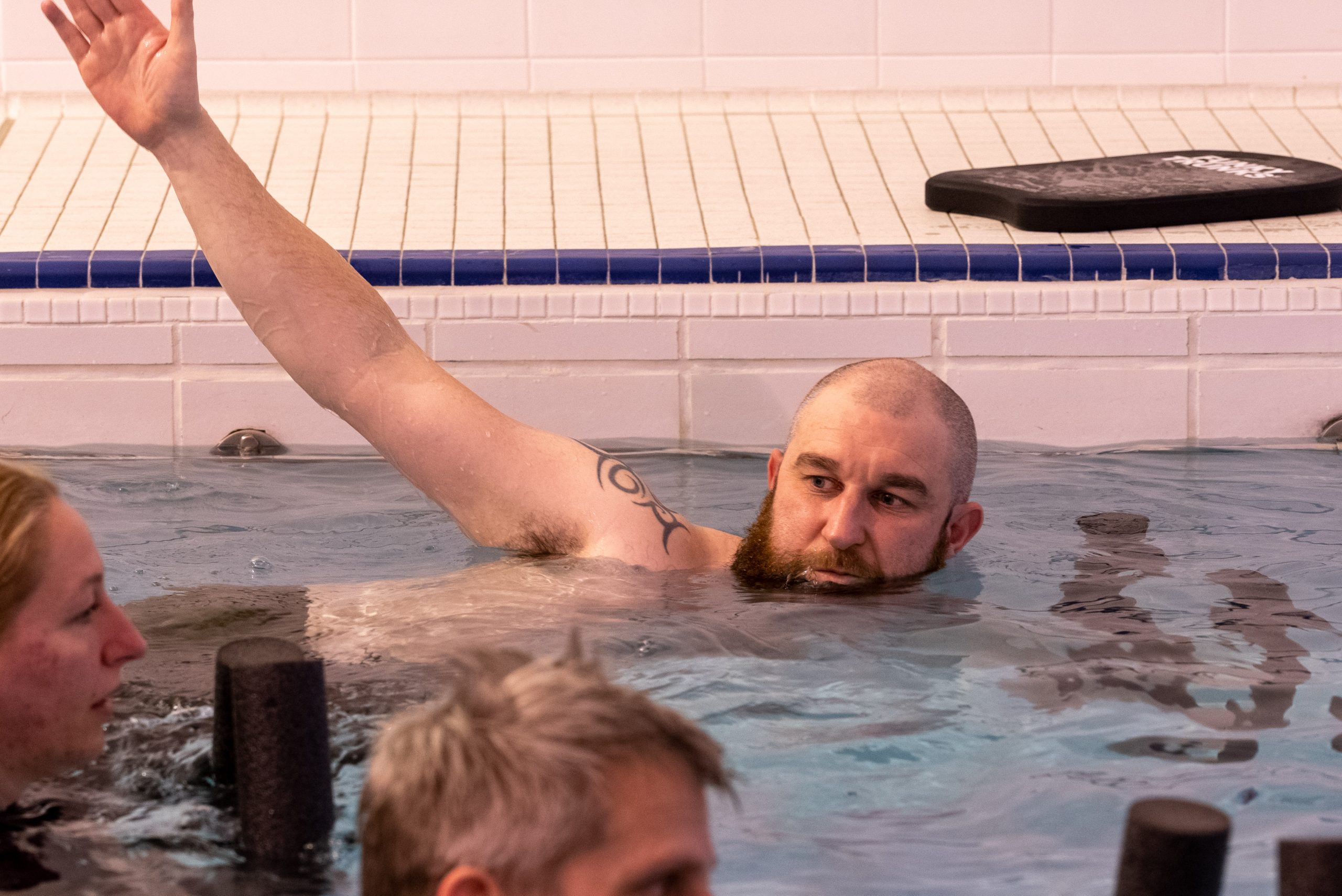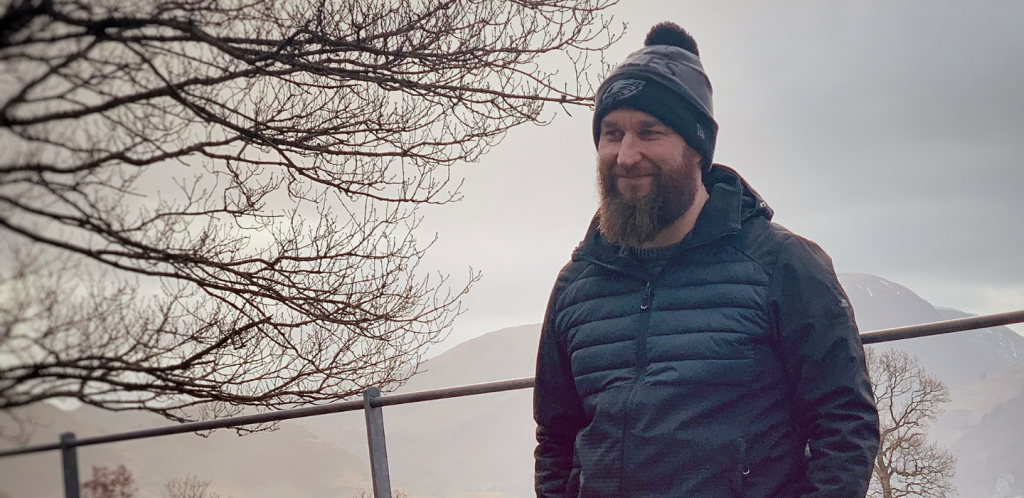Accepting help and support when you need it most, particularly when you’re fiercely independent, can be a difficult challenge – but Calum Balding says it massively helped him during his battle with cancer.
Calum, a wholetime firefighter with North Yorkshire Fire and Rescue Service, was diagnosed with Stage 3 bowel cancer in March 2021, putting an almost immediate halt to life as he knew it at the time.
He has now described the impact the treatment he received had on him and how, after reaching out to us for support, he was helped on his recovery at Jubilee House, our centre in Cumbria, and supported in building up his confidence again following a year out of work and the gym.
“I’ve done a bit of fundraising in the past for this charity,” says Calum. “I know it’s thanks to supporters’ donations that I’ve been able to get help myself.
“I actually first visited Jubilee House about 15 years ago. I injured the ligament in my knee playing football, so I came for a week’s rehabilitation to try and get me back on the run and fit.
“We did some walks together, the camaraderie was there throughout, then I also did the pool and hydropool which helped a lot with resistance training and steps. There was also light gym work, just to try and get my confidence back up.”
Calum remembered the support he received from then on, telling his colleagues about us on station – but never thought he’d need to access it again.
Sadly, however, he was diagnosed with bowel cancer in March 2021.
“I was diagnosed with Stage 3 cancer in the later of the Covid times, and it moved pretty quickly from there – my feet didn’t really touch the ground with it,” Calum says.

“I had an operation within a month and about six weeks after my op I was having chemotherapy – like a mop-up chemo, because I had a lymph node that was involved, and that was quite tiring. So for the whole of the last year I haven’t done any physical exercise.”
Calum was receiving treatment every two weeks from the start, which had a knock-on effect on his overall wellbeing.
“The steroids affected my sleep quite a lot, I had some hallucinations with those,” he recalls. “I also had neuropathy in my hand, through the type of chemo I was having.
“Then I’d have what’s called a first-bite sensation when I was eating something, which was a pain in my jaw… then skin, hair, oral thrush, the list kept on getting longer every week as I was going through it, but that’s almost a sign that it was doing its job for me.
“The purpose was to attack the cancer, but that also meant attacking some of these bodily functions. It was doing its job.

“You’d start to just get better after one round and then you’d be back in again… it was just trying to have that mental strength to make sure you’re pushing yourself and forcing yourself to go back again.”
While Calum says his family and three children kept him strong throughout, he struggled in particular at night.
“The hardest times were when I was trying to sleep,” Calum says. “I’m quite open through the day, talking to people and I’d try to have a good support network of friends, family and colleagues around me, but in the middle of the night it’s dark and you get a little bit lonely and the demons start to talk to you in your head.
“I tried to break it up a little bit by just going downstairs or breaking up the routine, watch something or find something to occupy my mind in those times.”
The treatment meant Calum was off work for the whole year and unable to exercise – something he’d really enjoyed before his diagnosis and was essential for his job.

It’s that that made him think of reaching out to us for further support towards the end of last year, as he focused on getting back to work following his treatment.
“I began focusing on the recovery and getting better before really pushing myself into the next step of getting fit, which is why I visited Jubilee House,” he adds.
“It was one of my managers that asked occupational health and they made that first step for me. I initially had a couple of Zoom calls to go over where I was at with my recovery and rehabilitation, and they spoke about exercises I could try at home first on Salaso.
“I’ve been touching base with Exercise Therapists and Physiotherapists here throughout.
“My goal now is to put the building blocks together for the next step of my recovery… I’ve not been in a gym for the best part of a year and my physical side of it… I can feel I’m out of breath doing the slightest things.
“However, that goes hand in hand with me not risking pushing myself. Coming out of here, I want the confidence to know how far I can push myself.”

Speaking during his stay at Jubilee House, Calum says: “This charity is the whole package, it’s everything from the mental wellbeing and sleep, to stress and anything that might be affecting your physical health.
“It’s not just your recovery, you’re coming out of here in a better position to what you came in.
“For me now, going forwards, it’s making sure people aren’t ashamed to reach out.
“Accepting help from people is not something to be scared or embarrassed about. I’ve learned that a lot this last year myself. When people offer you care and support, it’s there for a reason and you should really take it if you need it.
“It’s been a massive learning curve for myself and my family this year I think, to accept that help when you’re usually quite independent and young, fit and healthy. It can be hard and frustrating to be in a position where you’re accepting help and support, but once you get over it and you realise it’s for the greater good, then it’s worth it.”

Calum is now preparing to return to full operational duties, following a “long road” to recovery.
As a final word to people reading his story or going through cancer themselves, Calum says: “I personally find it really advantageous to be open and talk.
“For me, having that support and being open from the start, helped. It doesn’t build up, you can be honest when you’re not feeling great.
“I think, with the whole stigma around younger men that don’t usually talk greatly and don’t like to go to the doctors about things, my advice would be to try and speak to your peers or speak to somebody if you’re struggling or worried about anything.
“And finally, be a bit more tuned into your body and make sure you don’t put things off to get checked out.”

If you feel you’d benefit from our health and wellbeing support, you can call our Support Line on 0800 389 8820, make an enquiry online or visit the ‘Access Support’ tab in My Fire Fighters Charity.

